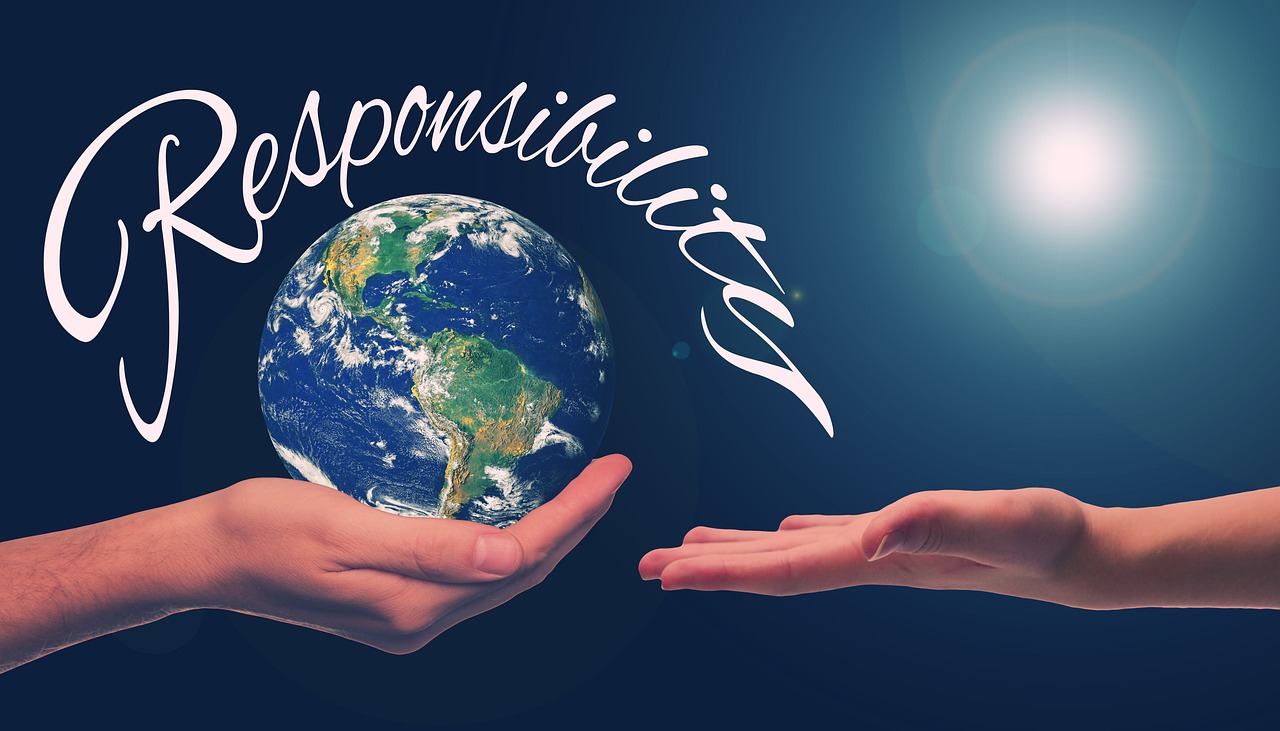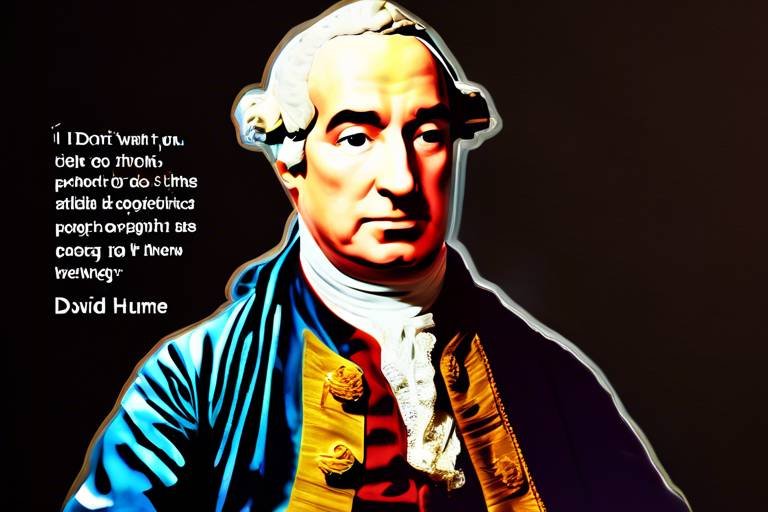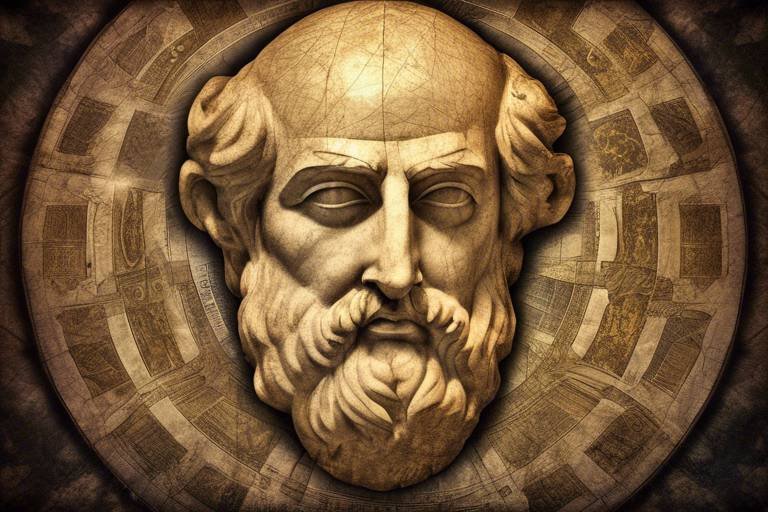Interpreting Kantian Ethics in Today's Context
In our fast-paced, ever-changing world, where moral dilemmas seem to pop up at every corner, the relevance of Kantian ethics cannot be overstated. Immanuel Kant, an 18th-century philosopher, laid down a framework that still resonates today, urging us to act according to principles that we would want to become universal laws. But what does that mean in practical terms? How can we apply Kant's ideas to our daily lives, especially in light of modern challenges in business, politics, and personal relationships? This article delves deep into the essence of Kantian ethics, illuminating its principles and exploring its implications in various fields.
At the heart of Kantian ethics lies the concept of duty. Kant believed that our actions should not be based on outcomes but rather on our intentions and adherence to moral law. This perspective shifts the focus from what we achieve to how we achieve it. Imagine a world where every decision we make is guided by a sense of duty—how transformative would that be? In this article, we will explore how Kant's moral philosophy can serve as a beacon of light in our murky ethical waters, offering clarity and direction.
Moreover, Kant's notion of the categorical imperative serves as a foundational tool for ethical decision-making. It challenges us to think critically about our actions and their implications. For example, if we consider lying to achieve a goal, Kant would ask us to reflect: "What if everyone lied?" This thought experiment forces us to confront the universality of our actions and their moral weight. As we navigate through the complexities of contemporary society, Kant's categorical imperative can guide us in making choices that uphold our integrity and respect the dignity of others.
As we journey through this exploration, we will also highlight the significance of autonomy in Kantian ethics. Autonomy emphasizes the importance of rationality and self-governance, reminding us that moral actions stem from our ability to think critically and make informed choices. In a world filled with external pressures and influences, maintaining our autonomy is crucial for personal responsibility. Kantian ethics encourages us to take ownership of our decisions, reinforcing the idea that we are accountable for our actions and their consequences.
Furthermore, we will examine how Kantian ethics finds its place in modern business practices. Companies today face ethical dilemmas that can significantly impact their reputation and stakeholder relationships. By integrating Kantian principles into corporate governance, organizations can foster a culture of ethical decision-making and corporate social responsibility. This not only enhances their brand image but also builds trust with consumers and employees alike. Imagine a corporate world where businesses prioritize ethical considerations over profit margins—what a remarkable shift that would be!
In the realm of politics, Kantian ethics continues to influence contemporary thought, particularly regarding human rights and justice. Kant's emphasis on the inherent dignity of each individual aligns seamlessly with modern human rights discourse. This perspective urges governments to recognize and uphold the rights of all citizens, fostering a just society where everyone is treated with respect and fairness. As we unpack these ideas, we will explore how Kant's philosophical insights can inform our understanding of justice and governance today.
- What is the main principle of Kantian ethics? Kantian ethics is primarily based on the idea of duty and the categorical imperative, which urges individuals to act according to maxims that could be universalized.
- How can Kantian ethics be applied in business? Businesses can apply Kantian ethics by prioritizing ethical decision-making and corporate social responsibility, ensuring that their actions respect the dignity of all stakeholders.
- What role does autonomy play in Kantian ethics? Autonomy is crucial in Kantian ethics as it emphasizes the importance of rationality and self-governance, allowing individuals to make moral decisions based on their understanding of duty.
- How does Kantian ethics relate to human rights? Kantian ethics contributes to the understanding of human rights by asserting the inherent dignity and worth of every individual, which aligns with modern human rights principles.

The Foundations of Kantian Ethics
Kantian ethics, developed by the German philosopher Immanuel Kant in the 18th century, is a cornerstone of modern moral philosophy. At its core, Kantian ethics is rooted in the concepts of duty, moral law, and the categorical imperative. These principles serve as the foundation for understanding what it means to act ethically in a complex world. Imagine navigating a vast ocean; Kant's ethics act as the compass, guiding individuals toward moral clarity and integrity amidst the turbulent waves of personal desires and societal pressures.
One of the key elements of Kantian ethics is the notion of duty, which emphasizes that moral actions are not merely about outcomes but about adhering to a set of principles that one recognizes as valid. Kant argues that every individual has a duty to act according to moral laws that they can rationally endorse. This idea introduces the concept of moral law, which is universal and applies to all rational beings. It’s like a universal code that everyone is expected to follow, regardless of their personal circumstances or desires.
Central to Kant's ethical framework is the categorical imperative, a principle that functions as a test for determining whether an action is morally permissible. Kant formulated this imperative in several ways, but one of the most famous formulations is: “Act only according to that maxim whereby you can, at the same time, will that it should become a universal law.” This means that before you act, you should consider whether the principle behind your action could be applied universally without contradiction. For instance, if you consider lying to get out of a difficult situation, you must ask yourself: “What if everyone lied in similar situations?” If the answer leads to a contradiction or a breakdown of trust, then the action is deemed immoral.
Furthermore, Kant's emphasis on autonomy plays a significant role in his ethical theory. Autonomy refers to the capacity of rational agents to govern themselves and make their own decisions based on reason. In Kantian ethics, individuals are seen as ends in themselves, deserving of respect and dignity. This perspective encourages people to act not only in their own interest but also in consideration of others’ rights and dignity. It’s like being part of a larger community where everyone’s rights are respected, creating a harmonious society.
In essence, the foundations of Kantian ethics compel us to reflect on our moral choices deeply. They challenge us to rise above our immediate desires and consider the broader implications of our actions. By understanding and applying these foundational principles, we can navigate the complexities of moral decision-making in a way that upholds our dignity and the dignity of others.

Kant's Categorical Imperative Explained
The categorical imperative is perhaps the most significant concept in Kantian ethics, serving as a foundational guideline for moral decision-making. Unlike hypothetical imperatives, which are conditional and depend on personal desires or goals, the categorical imperative is absolute and universal. It commands us to act in a way that our actions could be willed as a universal law. Imagine if every action you took could become a universal law—would you still proceed with it? This is the essence of Kant’s moral philosophy.
Kant formulated the categorical imperative in several ways, but two of the most notable formulations are the Formula of Universal Law and the Formula of Humanity. The Formula of Universal Law states: “Act only according to that maxim whereby you can at the same time will that it should become a universal law.” This means that before you act, you should consider whether the principle behind your action could be applied universally without contradiction. For instance, if you think it’s acceptable to lie, ask yourself: what if everyone lied? The chaos that would ensue reveals the flaw in such reasoning.
On the other hand, the Formula of Humanity emphasizes the intrinsic worth of every individual. It instructs us to treat humanity, whether in ourselves or others, always as an end and never merely as a means to an end. This principle is powerful in its implications. It challenges us to respect the dignity of others, recognizing that people are not just tools for our benefit but have their own rights and values. In a world where exploitation is rampant, this principle serves as a crucial reminder of our moral obligations toward one another.
To illustrate these formulations, consider the following table that summarizes their key elements:
| Formulation | Key Principle | Example |
|---|---|---|
| Formula of Universal Law | Act only according to that maxim that can be universalized | Lying cannot be universalized without contradiction |
| Formula of Humanity | Treat humanity as an end in itself | Using someone for personal gain is morally wrong |
In practical terms, applying the categorical imperative in our daily lives may seem daunting, but it is essential for ethical living. Whether you are making decisions in your personal life, workplace, or in broader societal contexts, the categorical imperative encourages a reflective approach to ethics. It asks you to think critically about the implications of your actions, ensuring they align with a moral framework that respects both individual rights and universal principles.
Moreover, the categorical imperative can serve as a compass in complex situations where the right course of action is not immediately clear. It pushes us to consider the broader impact of our decisions, fostering a sense of moral responsibility. By adhering to these principles, we not only enhance our own moral character but also contribute to a more just and equitable society.
In conclusion, Kant's categorical imperative is not just a theoretical construct; it is a practical tool for navigating the moral landscape of our lives. By understanding and applying its principles, we can strive for ethical integrity in our actions, ensuring that we respect the dignity of all individuals while adhering to universal moral laws.

Kantian Ethics and Autonomy
At the heart of Kantian ethics lies the concept of autonomy, which is essentially the ability of individuals to govern themselves through rational thought. Kant believed that true moral actions arise from a place of autonomy, where individuals are not merely following rules or societal norms but are instead guided by their own rational understanding of what is right and wrong. This notion of self-governance is crucial because it empowers individuals to take responsibility for their actions, making them moral agents capable of discerning their duties based on reason rather than external pressures.
To Kant, autonomy is not just a fancy philosophical term; it’s a fundamental aspect of human dignity. When we act autonomously, we respect our own capacity to reason and, in turn, respect the same capacity in others. This mutual respect forms the bedrock of moral interactions. Imagine a world where everyone acted solely under the influence of external forces—be it societal expectations, peer pressure, or authoritarian mandates. Such a world would lack genuine moral agency, as individuals would be mere puppets, devoid of the ability to make ethical choices based on their own rational deliberation.
Kant's emphasis on autonomy also leads us to consider the implications of our decisions. Each choice we make should reflect our rational understanding of duty, which means that we must be willing to analyze our motivations critically. Are we acting out of self-interest, or are we genuinely considering the well-being of others? This introspection is essential for moral growth and accountability. In our daily lives, we often face dilemmas that challenge our autonomy. For instance, in a workplace scenario, an employee may feel pressured to meet unrealistic targets at the expense of ethical standards. Here, the individual must weigh their responsibilities not only to their employer but also to their colleagues and society at large.
Furthermore, Kantian ethics asserts that autonomy is inherently linked to moral responsibility. When we act autonomously, we are accountable for the consequences of our actions. This accountability fosters a sense of integrity and trust in our relationships, whether personal or professional. For example, a leader who makes decisions based on rational ethical considerations rather than convenience or profit maximization will likely inspire loyalty and respect among their team. This is because such leaders demonstrate a commitment to both their own moral duties and the well-being of those they lead.
In summary, the connection between Kantian ethics and autonomy is profound. It challenges us to reflect on our motivations, embrace our capacity for rational decision-making, and accept the weight of our moral responsibilities. By doing so, we not only elevate our own ethical standards but also contribute to a more just and respectful society. As we navigate the complexities of modern life, embracing Kantian autonomy can serve as a guiding light, helping us to make choices that honor both our dignity and that of others.
- What is the significance of autonomy in Kantian ethics? Autonomy is crucial because it empowers individuals to make moral decisions based on their rational understanding, rather than external influences.
- How does Kantian ethics view moral responsibility? Kantian ethics emphasizes that individuals are morally responsible for their actions when they act autonomously and according to their rational duties.
- Can autonomy exist in a corporate environment? Yes, autonomy can thrive in a corporate setting when leaders encourage ethical decision-making and respect the dignity of their employees.

The Role of Rationality
Rationality plays a pivotal role in Kantian ethics, acting as the compass that guides individuals through the murky waters of moral decision-making. Imagine standing at a crossroads, where each path represents a different moral choice. Rationality is the flashlight that illuminates these paths, helping us discern which one aligns with our ethical duties. For Kant, the ability to reason is what sets humans apart from other beings; it empowers us to recognize our moral obligations and act accordingly.
In Kant's view, acting rationally means adhering to the principles of the categorical imperative, which asserts that one should only act according to that maxim which one can at the same time will that it should become a universal law. This notion places a heavy emphasis on the idea that our actions should be guided by principles that can be universally applied. For instance, if you consider lying to get out of a sticky situation, rationality prompts you to question whether you would want everyone else to lie in similar circumstances. If the answer is no, then the rational choice is to refrain from lying.
Moreover, rationality fosters a sense of autonomy and self-governance. When we engage in rational thought, we are not merely reacting to external pressures or emotions; instead, we are making conscious decisions based on our understanding of what is right. This self-governance is essential for moral agency, as it allows individuals to take responsibility for their actions. When we act out of rationality, we are not just following orders or societal norms; we are actively engaging with our moral duties and making choices that reflect our values.
Another interesting aspect of rationality in Kantian ethics is its role in recognizing the inherent dignity of others. When we use our rational faculties, we are better equipped to see others not just as means to an end but as ends in themselves. This perspective fosters respect and empathy, which are crucial for building healthy relationships, whether personal or professional. By applying rational thinking, we can navigate complex social interactions and make decisions that honor the dignity of everyone involved.
In summary, the role of rationality in Kantian ethics is not just about making the right choice; it's about cultivating a moral framework that respects both individual autonomy and the dignity of others. Rationality allows us to rise above mere instinct or societal pressure, providing a solid foundation for ethical behavior. As we navigate our lives, embracing rational thought can lead us to make decisions that are not only justifiable but also deeply respectful of our fellow human beings.
- What is the significance of rationality in Kantian ethics?
Rationality is crucial as it enables individuals to discern their moral duties and make ethical decisions based on universal principles. - How does rationality impact personal responsibility?
By acting rationally, individuals take ownership of their choices, aligning their actions with their understanding of moral obligations. - Can rationality improve interpersonal relationships?
Yes, rationality fosters respect for others' dignity, leading to healthier and more empathetic interactions.

Implications for Personal Responsibility
When we delve into the realm of Kantian ethics, one of the most striking implications that emerges is the profound emphasis on personal responsibility. Kant posited that every individual is not merely a passive recipient of moral laws but an active participant in the moral fabric of society. This notion challenges us to reflect on our own actions and the choices we make daily. It’s almost like being handed a map where every path you choose has its own moral weight—some lead to greater good, while others may lead to harm.
At the heart of Kant's philosophy is the idea that we are rational beings capable of understanding our duties. This rationality compels us to act not only in our own interests but in a way that respects the inherent dignity of others. In practical terms, this means that every decision we make—whether in our personal lives, in the workplace, or in our communities—carries ethical implications. Think of it as a ripple effect; your actions can create waves that impact others, sometimes in ways you might not even realize.
Moreover, Kantian ethics pushes us to consider the moral obligation we have towards ourselves and others. It’s not enough to simply avoid wrongdoing; we must actively strive to do what is right. This can manifest in various ways:
- Accountability: Acknowledging when we’ve erred and taking steps to rectify our mistakes.
- Integrity: Upholding our commitments and standing by our principles, even when it’s inconvenient.
- Empathy: Understanding the perspectives of others and considering how our choices affect them.
In a world where ethical dilemmas abound—from corporate scandals to personal conflicts—Kant's framework encourages us to ask, "What is my duty in this situation?" This question not only guides our decision-making but also reinforces the significance of being a responsible member of society. By embracing this responsibility, we contribute to a culture of ethical awareness and respect, fostering an environment where everyone can thrive.
Ultimately, the implications of Kantian ethics for personal responsibility are profound. They remind us that our choices matter. They encourage us to act in ways that reflect our rational understanding of duty, and they challenge us to live with integrity and accountability. In doing so, we not only honor ourselves but also uplift those around us, creating a more just and ethical world.
- What is Kantian ethics? Kantian ethics is a deontological moral theory developed by Immanuel Kant, which emphasizes duty, moral law, and the categorical imperative as guiding principles for ethical decision-making.
- How does personal responsibility relate to Kantian ethics? Personal responsibility in Kantian ethics involves recognizing our duty to act morally and make choices that respect the dignity and rights of others.
- Can Kantian ethics be applied in modern business practices? Yes, Kantian ethics can guide ethical decision-making in business by promoting corporate social responsibility and fair treatment of employees and consumers.
- What role does rationality play in Kantian ethics? Rationality is central to Kant's ethical theory, enabling individuals to discern their moral duties and make decisions that align with ethical principles.

Kantian Ethics in Modern Business Practices
In today’s fast-paced business environment, where profit often trumps principles, the application of Kantian ethics provides a refreshing perspective on corporate responsibility. Imagine a world where businesses operate not just to maximize shareholder value, but to uphold moral standards that respect the dignity of every individual. This is where Kant's philosophy comes into play, emphasizing duty and moral law as guiding principles for ethical decision-making.
Kantian ethics challenges businesses to look beyond mere compliance with laws and regulations. Instead, it urges them to act according to a set of universal moral principles that consider the impact of their decisions on all stakeholders involved. This means that companies should not only focus on profits but also on how their actions affect employees, customers, suppliers, and the community at large. The categorical imperative serves as a practical tool in this context, guiding businesses to ask themselves: "Would I want everyone to act in this way?" This simple yet profound question can transform corporate culture and decision-making processes.
Moreover, the application of Kantian ethics in business practices fosters a culture of integrity and accountability. When companies commit to ethical standards, they enhance their reputation and build trust with consumers. In an age where social media can amplify both positive and negative perceptions, maintaining a strong ethical stance is more crucial than ever. Companies that embrace Kantian ethics often find that their commitment to ethical practices leads to improved employee morale, customer loyalty, and ultimately, long-term success.
Let’s take a closer look at some key areas where Kantian ethics can be applied in modern business practices:
- Corporate Social Responsibility (CSR): Businesses should engage in practices that not only benefit their bottom line but also contribute positively to society. This includes sustainable practices, fair trade, and community engagement.
- Treatment of Employees: Kantian ethics emphasizes respect for individuals, which translates to fair wages, safe working conditions, and opportunities for professional growth.
- Consumer Rights: Companies should prioritize transparency and honesty in their marketing and product offerings, ensuring that consumers are well-informed and treated with respect.
By integrating these principles into their operations, businesses can create a more ethical marketplace. The shift towards a Kantian ethical framework is not just about doing the right thing; it’s about recognizing that ethical behavior is a long-term investment that yields dividends in trust and loyalty.
In conclusion, Kantian ethics offers a robust framework for navigating the complex moral landscape of modern business. By prioritizing duty and moral law, companies can foster an environment of respect and accountability, ultimately leading to a more sustainable and equitable business model. The question remains: Are businesses ready to embrace this paradigm shift, or will they continue to chase profits at the expense of ethics?
- What is Kantian ethics? Kantian ethics is a deontological ethical theory developed by Immanuel Kant, which emphasizes the importance of duty and adherence to moral laws.
- How can Kantian ethics be applied in business? Businesses can apply Kantian ethics by ensuring that their practices respect the dignity of all stakeholders, focusing on corporate social responsibility, and maintaining transparency with consumers.
- Why is ethical behavior important in business? Ethical behavior builds trust, enhances reputation, and fosters long-term relationships with customers and employees, ultimately leading to sustainable success.

Kantian Ethics and Political Philosophy
Kantian ethics has a profound impact on political philosophy, shaping the way we understand the relationship between individuals and the state. At its core, Kant's philosophy emphasizes the inherent dignity of every person, which translates into a moral obligation for governments to respect and uphold the rights of individuals. This idea is not just philosophical fluff; it has real-world implications that echo through our laws, policies, and societal norms. Imagine a world where every individual is treated with respect and their rights are protected simply because they are human. This is the essence of Kantian thought in the political realm.
One of the key contributions of Kantian ethics to political philosophy is the concept of human rights. Kant argued that every individual possesses intrinsic worth, which means that their rights cannot be violated or ignored. This perspective laid the groundwork for modern human rights frameworks, influencing documents like the Universal Declaration of Human Rights. In fact, many of the rights we take for granted today—such as the right to free speech, the right to a fair trial, and the right to privacy—are grounded in Kantian thought. These rights are not just privileges granted by the state; they are moral imperatives that must be recognized and protected.
Furthermore, Kant's ideas about justice are crucial for understanding how societies ought to function. He believed that justice is not merely about punishment or retribution; it is about fairness and equality. In a Kantian framework, justice requires that laws and policies are applied uniformly, without bias or favoritism. This leads to a more equitable society where individuals are treated as equals under the law. The implications of this are significant, especially when we consider issues like systemic inequality and discrimination. A Kantian approach urges us to examine our political structures critically and strive for reforms that promote justice for all.
To illustrate the relevance of Kantian ethics in contemporary political thought, consider the following table that summarizes key aspects of Kant's philosophy and their implications for modern governance:
| Kantian Principle | Implication for Political Philosophy |
|---|---|
| Inherent Dignity | Every individual has rights that must be respected by the state. |
| Universal Moral Law | Justice must be applied equally to all individuals, promoting fairness. |
| Autonomy | Individuals have the right to make their own choices within a moral framework. |
| Duty to Others | Governments have a moral obligation to protect the rights of their citizens. |
In conclusion, Kantian ethics offers a robust framework for understanding political philosophy. It reminds us that the ultimate goal of any political system should be to uphold the dignity and rights of individuals. As we navigate the complexities of modern governance—whether in discussions about human rights, social justice, or political accountability—Kant's principles serve as a guiding light, urging us to create a society where every person's worth is recognized and protected. So, next time you think about politics, consider how Kantian ethics might shape not just our laws, but our very understanding of what it means to be human.
- What is Kantian ethics? Kantian ethics is a deontological moral theory developed by Immanuel Kant, focusing on duty, moral law, and the categorical imperative.
- How does Kantian ethics relate to human rights? Kantian ethics emphasizes the inherent dignity of individuals, which forms the basis for modern human rights principles.
- What role does justice play in Kantian ethics? Justice in Kantian ethics involves fairness and equality, requiring that laws be applied consistently to all individuals.
- Can Kantian ethics be applied to modern political issues? Yes, Kantian ethics provides a framework for addressing contemporary issues like human rights, social justice, and governmental responsibilities.

Human Rights and Kantian Ethics
When we delve into the realm of human rights through the lens of Kantian ethics, we uncover a profound connection that underscores the intrinsic dignity and worth of every individual. Kant’s philosophy posits that every person is an end in themselves, never merely a means to an end. This fundamental principle is pivotal in understanding how human rights are not just privileges granted by governments or societies, but rather, they are inherent rights that stem from our shared humanity.
Kant’s ethical framework emphasizes the importance of treating individuals with respect and dignity, which aligns seamlessly with the modern conception of human rights. For instance, the Universal Declaration of Human Rights, adopted by the United Nations in 1948, resonates with Kantian principles by asserting that all human beings are entitled to certain inalienable rights, regardless of their nationality, ethnicity, or beliefs. This declaration can be viewed as a manifestation of Kant’s moral law, where the respect for individuals is paramount.
Moreover, Kantian ethics advocates for the idea of moral autonomy. This means that individuals are not only entitled to their rights but also have the responsibility to uphold the rights of others. In a Kantian framework, exercising one’s rights must be balanced with respecting the rights of others. This reciprocal relationship is crucial in fostering a society that values justice and equality. It prompts us to ask ourselves: Are we honoring the rights of others as we seek to protect our own?
To illustrate the impact of Kantian ethics on human rights, consider the following table that highlights key aspects of Kant's philosophy and their relation to contemporary human rights:
| Kantian Principle | Human Rights Correlation |
|---|---|
| Respect for Persons | Every individual has the right to be treated with dignity. |
| Moral Autonomy | Individuals have the right to make choices about their own lives. |
| Universalizability | Rights should apply to all individuals equally. |
| Duty to Others | We have a moral obligation to protect the rights of others. |
In contemporary discussions about human rights, Kant’s influence is evident in various movements advocating for social justice, equality, and the protection of vulnerable populations. Activists often invoke Kantian ethics to argue against practices such as discrimination, exploitation, and violence, championing the idea that every individual deserves respect and protection under the law. This perspective not only enriches our understanding of human rights but also challenges us to reflect on our responsibilities as members of a global community.
Ultimately, the interplay between Kantian ethics and human rights serves as a guiding light in our moral landscape. It reminds us that our actions and decisions should not only reflect our interests but also consider the broader implications for humanity. By embracing these ethical principles, we can foster a more just and equitable world where the rights of every individual are recognized and upheld.
- What are human rights in the context of Kantian ethics? Human rights are seen as inherent rights that arise from the dignity of each individual, emphasizing respect and moral autonomy.
- How does Kantian ethics influence modern human rights movements? Kantian principles provide a moral foundation for advocating justice, equality, and the protection of vulnerable populations.
- Can Kantian ethics be applied in today's political landscape? Yes, Kantian ethics can guide political decisions by emphasizing the importance of treating all individuals with respect and ensuring justice for all.

Justice in a Kantian Framework
When we delve into the concept of justice through the lens of Kantian ethics, we uncover a rich tapestry of moral imperatives that advocate for fairness and equality. Kant believed that justice is not merely a societal construct but a fundamental requirement of moral law. This perspective challenges us to rethink how we approach justice in our daily lives and in the broader context of governance. Kant's insistence on treating individuals as ends in themselves, rather than as means to an end, underscores the intrinsic worth of every person and serves as a guiding principle for just actions.
In Kant's view, justice is deeply intertwined with the concept of categorical imperatives. These imperatives are universal moral laws that apply to all rational beings, regardless of personal inclinations or societal norms. For instance, consider the principle of universalizability: a moral action is only just if it can be universally applied without contradiction. This means that when making decisions, whether in a personal or political context, we must ask ourselves: "Would I want everyone to act this way?" If the answer is no, then the action fails the test of justice. This framework not only promotes fairness but also fosters a sense of accountability among individuals and institutions.
Moreover, Kantian justice emphasizes equality and the moral duty to respect the rights of others. In a world where disparities often exist, this principle urges us to advocate for the marginalized and to ensure that justice is not selective but rather inclusive. For example, in legal systems, the Kantian approach would demand that laws be applied equitably, without bias towards wealth, status, or power. This aspect of Kantian ethics resonates profoundly in contemporary discussions about social justice, where the call for equality and fair treatment is increasingly urgent.
To illustrate Kant's vision of justice further, we can consider a table that outlines key aspects of justice within his ethical framework:
| Aspect of Justice | Kantian Principle | Implications |
|---|---|---|
| Universalizability | Act only according to that maxim which you can at the same time will that it should become a universal law. | Promotes fairness and accountability in moral decision-making. |
| Respect for Persons | Always treat humanity, whether in your own person or in the person of any other, never merely as a means to an end. | Affirms the intrinsic dignity and worth of every individual. |
| Equality | All rational beings have equal moral worth. | Encourages inclusive policies and practices in society. |
In conclusion, a Kantian framework for justice not only provides a robust moral compass for individual actions but also lays the groundwork for just governance. It challenges us to reflect on our responsibilities towards others and to actively participate in creating a society that upholds the dignity and rights of all individuals. As we navigate the complexities of modern life, embracing these Kantian principles can lead us toward a more equitable and just world.
- What is the main principle of Kantian justice?
Kantian justice is grounded in the idea of universal moral laws that apply to all rational beings, emphasizing fairness, equality, and respect for individuals. - How does Kantian ethics apply to modern governance?
Kantian ethics encourages equitable treatment under the law and advocates for policies that respect the rights and dignity of every individual. - Can Kantian principles be applied to personal relationships?
Absolutely! Kantian ethics promotes treating others with respect and dignity, which is essential for healthy and just personal relationships.
Frequently Asked Questions
- What are the main principles of Kantian ethics?
Kantian ethics is grounded in the concepts of duty, moral law, and the categorical imperative. These principles emphasize that moral actions are determined by the intention behind them rather than their consequences. Essentially, it’s about doing what is right because it is your duty, not because it leads to a favorable outcome.
- How does the categorical imperative guide moral decisions?
The categorical imperative serves as a universal moral law that applies to all rational beings. It has several formulations, but the core idea is that one should act only according to maxims that can be universally applied. For instance, if lying were acceptable, it would undermine trust, which is essential for societal functioning.
- Why is autonomy important in Kantian ethics?
Autonomy is crucial in Kantian ethics because it highlights the importance of rational self-governance. Individuals are seen as moral agents responsible for their actions. This means that they must make choices based on rational thought and an understanding of their duties, reinforcing the idea that true moral actions come from within.
- How does Kantian ethics apply to business practices?
Kantian ethics influences modern business by promoting ethical decision-making and corporate social responsibility. Companies are encouraged to treat employees and consumers with respect and fairness, acknowledging their inherent dignity. This approach fosters a more ethical business environment that values long-term relationships over short-term gains.
- What is the relationship between Kantian ethics and human rights?
Kant's philosophy underlines the inherent dignity of every individual, which forms the basis for modern human rights discourse. His ideas advocate that every person deserves respect and should never be treated merely as a means to an end, reinforcing the concept that human rights are universal and non-negotiable.
- How does Kantian ethics define justice?
In a Kantian framework, justice is about fairness and equality. It emphasizes that moral imperatives guide just governance, ensuring that laws and policies respect the dignity of all individuals. Justice is not just about punishment but also about creating a society where everyone can thrive under equitable conditions.



















